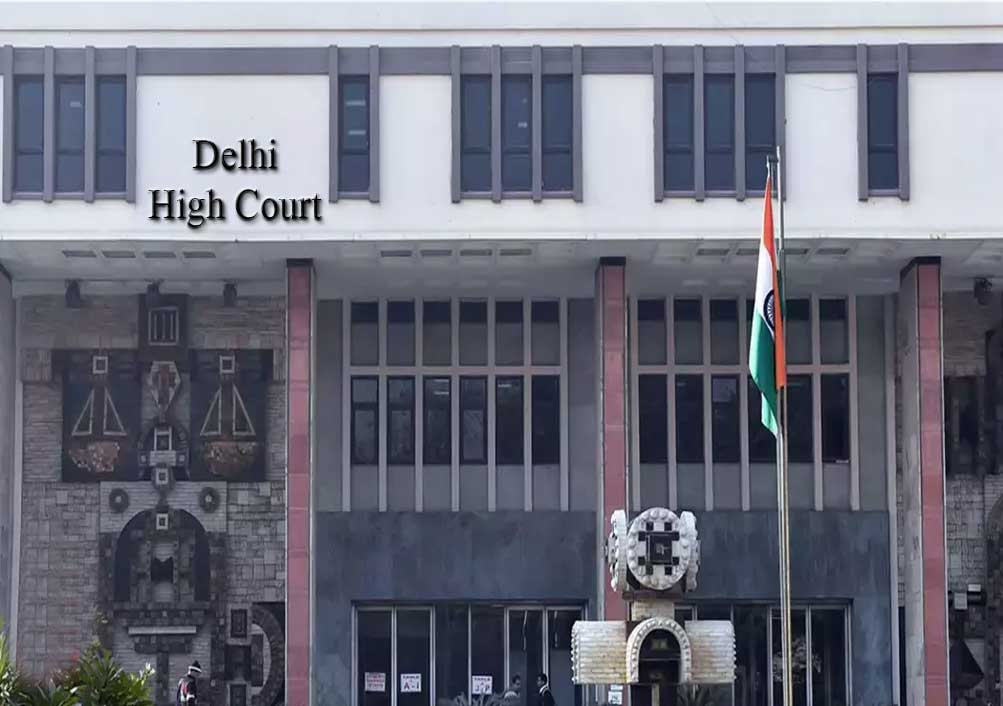High Court can exercise its inherent powers independently of the limitations set forth in Section 320 CrPC: Delhi HC allows quashing plea in rape case as accused married victim and they were living happily with two minor children
Justice Rajnish Bhatnagar [31-01-2024]

Read Order: PREM KUMAR v. THE STATE & ORS [DEL HC- W.P.(CRL) 2869/2023]
Tulip Kanth
New Delhi, February 2, 2024: Considering the fact that the rape accused and the victim got married and the couple also had two minor children, the Delhi High Court has allowed a petition filed by the petitioner under Article 226 of Constitution of India read with section 482 Cr.P.C for quashing of an FIR registered under Sections 363/376 IPC and Section 6 POCSO Act.
The factual scenario of this case was that an FIR under section 363 IPC was registered on the complaint of respondent no.2, who is the father of respondent no. 3/victim, against the petitioner alleging that the petitioner enticed the daughter of the complainant and took off with her. During the course of investigation, the victim girl/respondent no.3 came to Police Station and thereafter her statement under section 161 Cr.P.C was recorded.
It was stated by her that she left the house of her parents of her own free will because her parents objected to the relationship between her and the petitioner Prem Kumar and also threatened to kill her and the petitioner if she continued to be in contact with him. She further stated that during her time with the petitioner, they stayed at different guest houses and there was also physical relationship between them, with her consent and free will. It was also stated by her that during their time together they also got married. However there was no document, witness or photograph available to support the same. Further, the statement of the victim under section 164 Cr.P.C was recorded wherein she reiterated these facts.
On further investigation, the age of the victim was verified to be about 16-17 years. On this, Sections 376 IPC and 6 POCSO were added and the accused was arrested.
The State counsel had asked for the dismissal of this petition on the ground that this was not a fit case to invoke the inherent jurisdiction of the Court to exercise its power on the basis of compromise arrived at between the parties with respect to an offence not compoundable under Section 320 Cr.P.C.
At the outset, the single-Judge Bench of Justice Rajnish Bhatnagar opined that the respondent no.3-victim had solemnized marriage with the petitioner and they both were living happily and harmoniously. It was also in the interest of society to settle and re-settle the family for their welfare.
Placing reliance upon its judgments in Gian Singh v. State of Punjab, [LQ/SC/2012/838]; Parbatbhai Aahir alias Parbhathbhai Bhim singh bhai Karmur v. State of Gujarat [LQ/SC/2017/1450]; Madan Mohan Abbot v. State of Punjab, [LQ/SC/2008/766], the Bench said, “This means that the High Court has the authority to exercise its inherent powers independently of the limitations set forth in Section 320 Cr.P.C.”
“No doubt Section 376 IPC and Section 6 of the POCSO Act are not compoundable under Section 320 Cr.P.C., however, as explained by Hon'ble Supreme Court in Gian Singh's, Narinder Singh's, Parbatbhai Aahir's and Laxmi Narayan's cases (supra), the authority of the High Court under Section 482 Cr.P.C. remains unrestricted by the provisions of Section 320 Cr.P.C”, the Bench clarified.
It was further opined by the Bench that the High Court can use its inherent powers under Section 482 Cr.P.C. to quash FIRs and criminal proceedings if deemed necessary based on the specific facts and circumstances of the case, either to serve the interests of justice or to prevent the misuse of the court process. This power can even be exercised in cases where the offenses are non-compoundable, but the parties have reached a settlement among themselves.
It was noticed by the Bench that the parties had already married each other.In the Affidavit-cum-No-objection, respondent no.3 had stated that she had no objection in case the FIR was quashed. Considering the fact that both the petitioner and the respondent no.3 were happily residing together with their two minor children and were considering to restart their lives together with a new beginning, the Bench remarked, “This Court cannot be a silent spectator to or turn its back on the distressed family. If the impugned FIR is not quashed, the petitioner will have to face incarceration for at least 10 years which will negatively impact their lives, including their two minor children. The mistake or blunder, which otherwise constitutes an offence, has been committed due to immature act and uncontrolled emotions of two persons, out of whom, one was a minor, on the verge of majority, at the time of incident as claimed by the state.”
Thus, considering the lives and future of two minor children, the Bench allowed the petition and quashed the FIR registered under Sections 376/363 IPC and Section 6 of POCSO Act.
Sign up for our weekly newsletter to stay up to date on our product, events featured blog, special offer and all of the exciting things that take place here at Legitquest.




Add a Comment